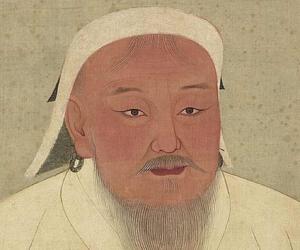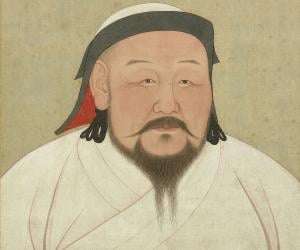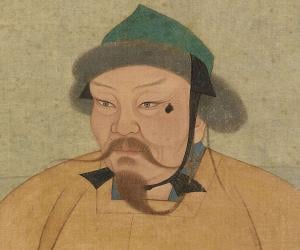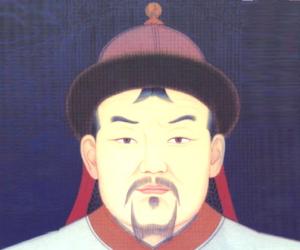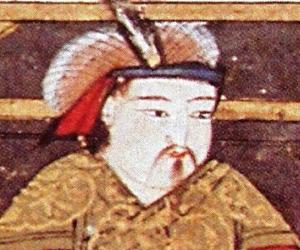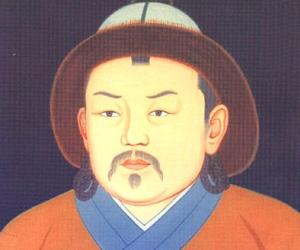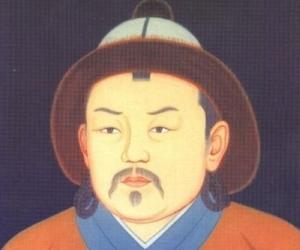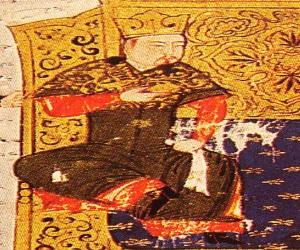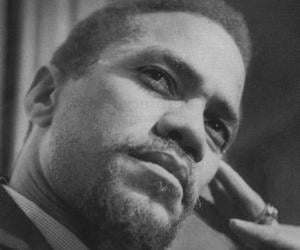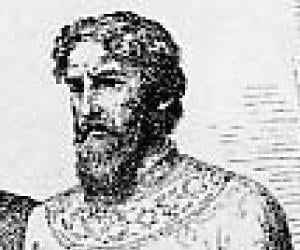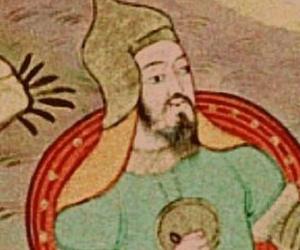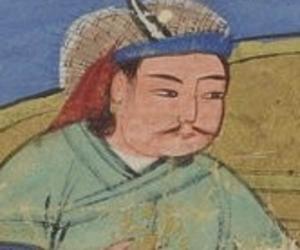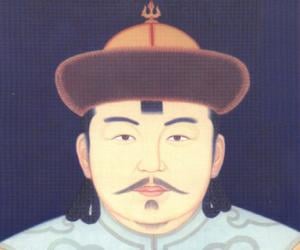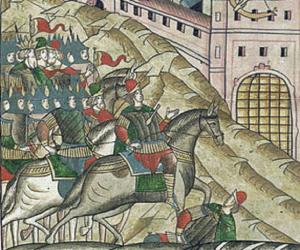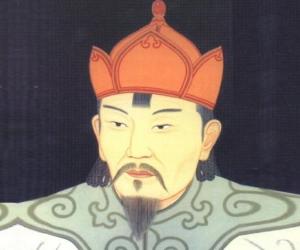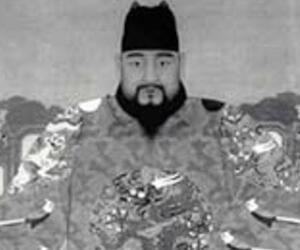1
Genghis Khan
(Great Khan of the Mongol Empire (1206 - 1227))
Birthdate: 1158 AD
Birthplace: Khentii Mountains, Mongolia
Died: August 18, 1227
Genghis Khan was the founder and first khan of the Mongol Empire, uniting Mongol tribes and launching military campaigns that conquered large parts of China and Central Asia. He transformed the Mongols' tribal structure into an integrated meritocracy, consolidating power through reforms and military conquests. Genghis led successful campaigns against the Western Xia, Jin dynasty, and Khwarazmian Empire, expanding Mongol territories and exerting influence across vast regions. Though controversial for his ruthlessness in war, he is recognized for fostering commercial and cultural exchange.
